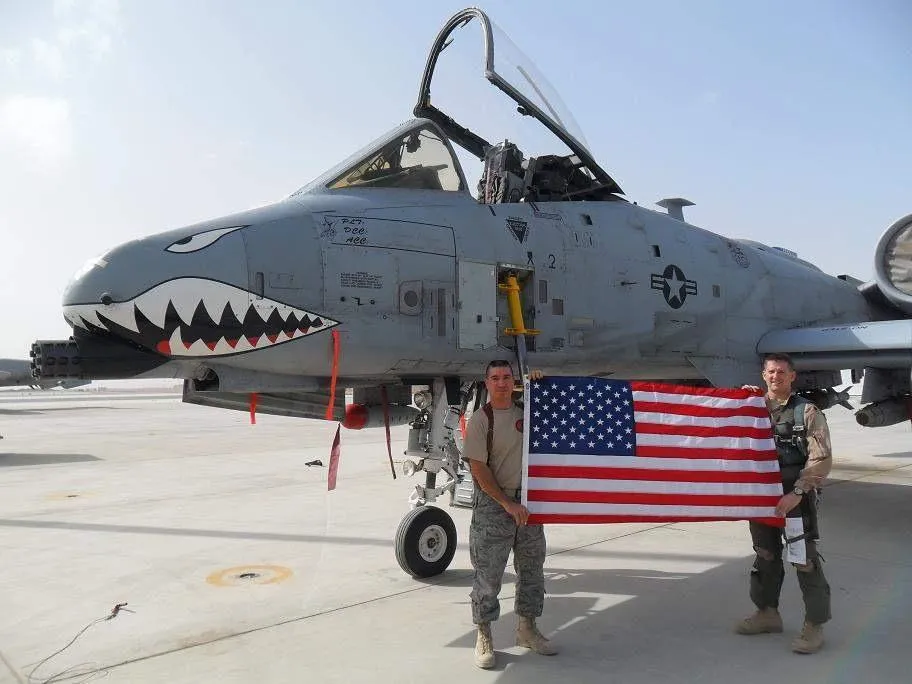2-SECOND BURSTS
SHORT THOUGHTS ON LEADERSHIP, DECISION-MAKING, FLIGHT, AND OTHER TOPICS OF THE DAY
ARTICLES

The CAS Mindset--Find a Way to Win
An A-10 friend of mine described in simple words why an A-10 pilot--a pure bred Close Air Support (CAS) pilot--is so revered when it matters.
"A flight of Hogs shows up to a fight, quickly understands the fight, then wins." It is that simple. But let me break it down a bit more.
Working as a CAS pilot, I'd say there is also a simple list of rules: 1) Know the enemy, 2) Know your role, 3) Don't miss.
Know the enemy. You will never have total situational awareness, but a great CAS pilot scratches and claws for all they can get. They follow the cues on the radios, the tones of the players. They know, understand, and apply the nuances of the terrain. They use the weather to their advantage. They understand the battle plans and habits of the enemy, the size of the force, their standard maneuvers, their weaknesses and strengths. They know whether or not they move at night, or in the early morning. They know the weapons of the enemy sufficient to counter them as a threat to themselves and the ground forces they are protecting.
Know your role. Support is in the name of the mission, and the CAS pilot can never forget they are there for the ground commander and his 18-year old soldiers. A good CAS pilot understands the ground commander's intent, both stated and expected. They provide advice and expertise, a sounding board, a three-dimensional viewpoint, and occasionally a bit of encouragement when there are incoming rounds and the ground forces are rattled or confused. Most of all, a good CAS pilot assumes a position of leadership on the battlefield. No, that pilot doesn't have perfect awareness, probably hasn't studied the maps as much as the ground commander and his team have, but the leadership is not based on position or intel or rank. It s based on that pilot's personal vision of not losing a single guy on the ground, of not allowing the enemy the upper hand, of having the freedom to maneuver and act with an assertiveness and confidence that comes from a leader.
Don't miss. The majority of what a CAS pilot does doesn't involve the employment of weapons. But when they are asked to rain down kinetic destruction from above, they must do so with the confidence that their weapon will hit where they need it to hit, have the effect that is desired, and inspire the ground forces with confidence that their guardian angel knows what he is doing every time. Delivery. of explosive force to a precise location on the ground is not some simple task, not a trip to Staples to push the Easy Button or the aim of a Call of Duty weapon that always hits the target. Precision takes hundreds of hours and literally thousands of repetitions to master with the confidence that the ground forces need from a CAS pilot. It takes hundreds of misses, corrections, and debriefs to fine tune the abiliy to deliver any weapons where it is needed to save the lives and turn a battle in favor of friendly forces.
Win. Technical experts often get wrapped around the axle on TTPs, battle plans, formations, and the physics of delivering weapons. That is part of being good at the CAS craft. But ultimately, none of it matters if you don't find a way to win.
Life is not much different from being a CAS pilot. We have to understand our environment, our role, and then be good at our craft, regardless of what it is. But all of the craftsmanship doesn't matter if we don't have the singular focus of winning whatever fight we face. Information means nothing without context. Hard work without fitting into the bigger picture means nothing. Fantastic technical skills applied to meaningless situations does nobody any good. We have to apply it all to win.

CONTACT DEREK!

MEDIA INQUIRIES
Members of the press are welcome to contact us regarding any requests at [email protected] ;
(385) 777-6285

